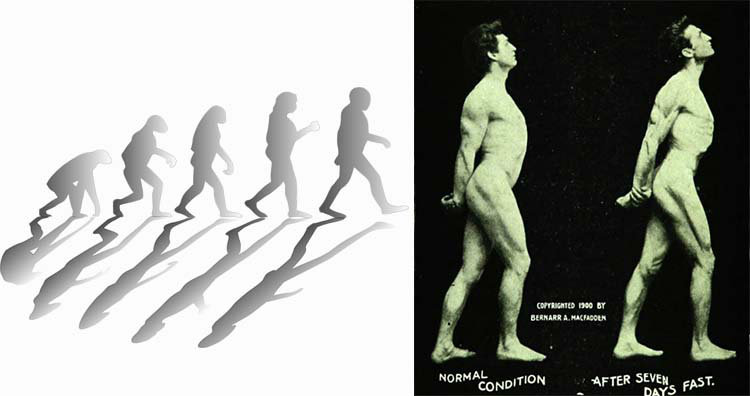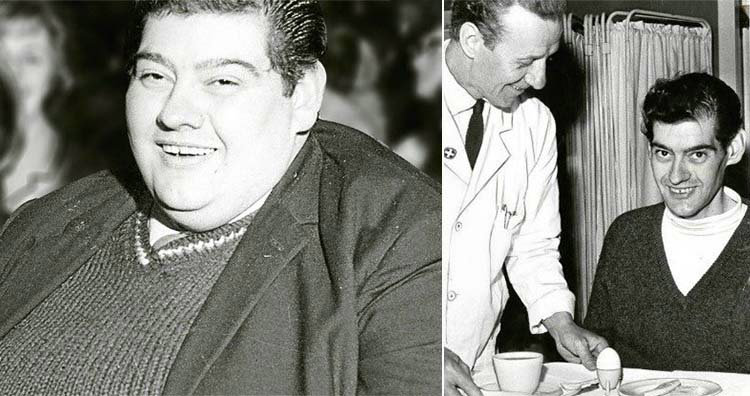In 1965, a 27-year-old man in Scotland, Angus Barbieri, decided he wanted to lose some weight. At the time, he weighed 456 pounds. Under doctors’ supervision, he began fasting and survived for more than a year without food, setting a new world record.
Angus Barbieri was an obese man who was determined to lose weight. He showed up at the hospital and told doctors he was going to begin fasting, no matter what, so they might as well monitor him.

According to the doctors’ report, he presented himself for treatment, and the initial plan was only a short-term fast. But after it began, the patient seemed to be maintaining good health and “was eager to reach his ‘ideal’ weight,” so the fast continued, even though fasts over 40 days are considered dangerous.
During the fast, Barbieri lived at home and went to the hospital for frequent checkups. He reportedly only consumed vitamins, supplements, and non-caloric fluids. He only defecated once every 37 to 48 days.

Barbieri took supplements that provided potassium, sodium, and yeast. He drank only “non-caloric fluids” including sparkling water, coffee, and tea.
The doctors’ report on the case noted that there have been several well-documented examples of people dying when attempting to starve themselves to lose weight. For example, two people died from heart failure, one died from small bowel obstruction, and two died during the “re-feeding period” after they had finished fasting.
So, doctors monitored Barbieri’s health with regular blood tests, but he seemed to stay healthy. At one point during the fast, doctors found Barbieri had low blood sugar levels, but he showed no symptoms and felt well.
Barbieri was able to go a year without food because the human body has evolved to live off of body fat when food is scarce.

When fasting for more than two or three days, the body starts getting most of its energy from breaking down fat, as well as some from breaking down muscles (although that can be prevented through resistance training). Eventually, the body gets all of its energy from body fat. It breaks it down and converts it into glucose and ketones that the body can run on. However, there are some essential vitamins and nutrients that your body can’t produce, which is why Barbieri was given supplements.
There have been other cases of people surviving long periods without food, often because they were on hunger strikes. In 1973, a man in prison reportedly went on hunger strike for 385 days because he claimed he was innocent. He was eventually force-fed using a feeding tube.
The fast lasted 382 days, and Barbieri lost 276 pounds. That brought him down to his ideal weight of 180 pounds. During the next five years, Barbieri only gained back about 16 pounds.

Today, doctors say the year-long fast was irresponsible because it put the patient’s welfare at risk. But at the time, doctors concluded that “supervised therapeutic starvation of the obese patient can be a safe therapy.” But they warned that “extended starvation therapy” should be used with caution. The doctors’ report also thanked Barbieri for “his cheerful co-operation and steadfast application to the task of achieving a normal physique.”
At the end of his fast, Barbieri said, “apart from feeling a wee bit weak, I feel no ill effects.” He also said that he had forgotten what food tasted like. For his first meal after the fast, he ate a boiled egg, a slice of buttered bread, and a cup of coffee. He told a newspaper reporter, “I thoroughly enjoyed my egg and I feel very full.”